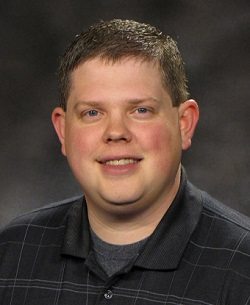Recently I read a story written by one of the south’s most famous short story writers. Her name is Flannery O’Conner, and in 1940’s and 50’s she wrote a number of short stories about the south. She was a Christian woman and wrote most her stories from a Christian perspective, although that is not always seen on the surface. The particular story I read is called, “The Life You Save May Be Your Own.”
The story is set in the rural south and begins with the picture of a one armed man walking down a dusty country road. The man is approaching a house where an old woman lives with her retarded daughter. As he approaches the porch and conversation ensues, it is quickly apparent that both the old woman and the traveling one armed man want something. The old woman wants a suitable husband for her daughter to live on the land, and the one armed man wants some money and the old broken down car behind the house.
The old woman is rightfully cautious of this man, but he offers to stay and fix up the place with meals and a place to sleep as his only fee. Slowly he gains the old woman’s trust, and against her better judgment she starts dropping hints that she would like him to marry her daughter. The man lets this desire linger for a while as he repairs the old car, but once it is finished he agrees to marry the daughter, with the caveat that she give him money to take her to a proper dinner and motel after the wedding. The old woman knows better than to do this and tries to talk him out of it, but he was persuasive and she wanted to believe he would do right by her daughter, and she agreed to give him enough money to go.
As you probably anticipate, when the man left with the money he did not come back. He dropped the handicapped girl off at a restaurant and headed to the next town with her money and car. As he drives three things are of note. First, he reflects on what he has done and knows the evil of it. He even goes so far as to ask God to smite the slime of the earth. Second, he sees a sign that says “drive slowly; the life you save may be your own.” And finally, a strange shaped cloud, in the form of a turnip (or a heart?) looks down on the scene with the sun shining behind it. The story closes with the heart shaped cloud in front of his car while a dark stormy cloud chases him from behind.
I don’t know what Ms. O’Conner meant to convey with this story, but when I read the work it made me think of Ephesians 2:1-5. In that passage Paul talks about who the Ephesians used to be. They were dead in their transgressions and their sins. They walked according to the pattern of this world and according to the prince of the power of the air. They lived by the power of the flesh and indulged every lustful desire, and most of all they were by nature children of God’s wrath.
However, in verse four, Paul speaks some of the most beautiful words ever spoken, “But God!” And that is what I think that story is about. I wouldn’t be surprised if Ms. O’Conner wasn’t writing a story about us…all of us. We all know the evil that we shouldn’t do, and yet how easily do we talk ourselves into doing the things we shouldn’t do? Just like the one armed man and the old woman, we deceive ourselves into thinking our wrong desires will provide us with what we really want. But the truth is, they won’t—they can’t—and we truly are by nature “children of wrath” who deserve to be smote. But God won’t let that happen. He is the love that looks down on us as the cloud of darkness chases behind. We don’t deserve it, but God’s grace overlooks what we deserve and instead makes us alive in his son Jesus Christ.
“It is by faith you have been saved through grace, and that not of yourselves, it is the gift of God!”
(Don’t forget to join me for A Message from the Heart radio program Sunday evening at 8:00pm on KJAK 92.7FM, or streaming live at www.kjak.com)
(curtisbaker@hotmail.com)
Write to: P.O. Box 157, Slaton, TX, 79364


